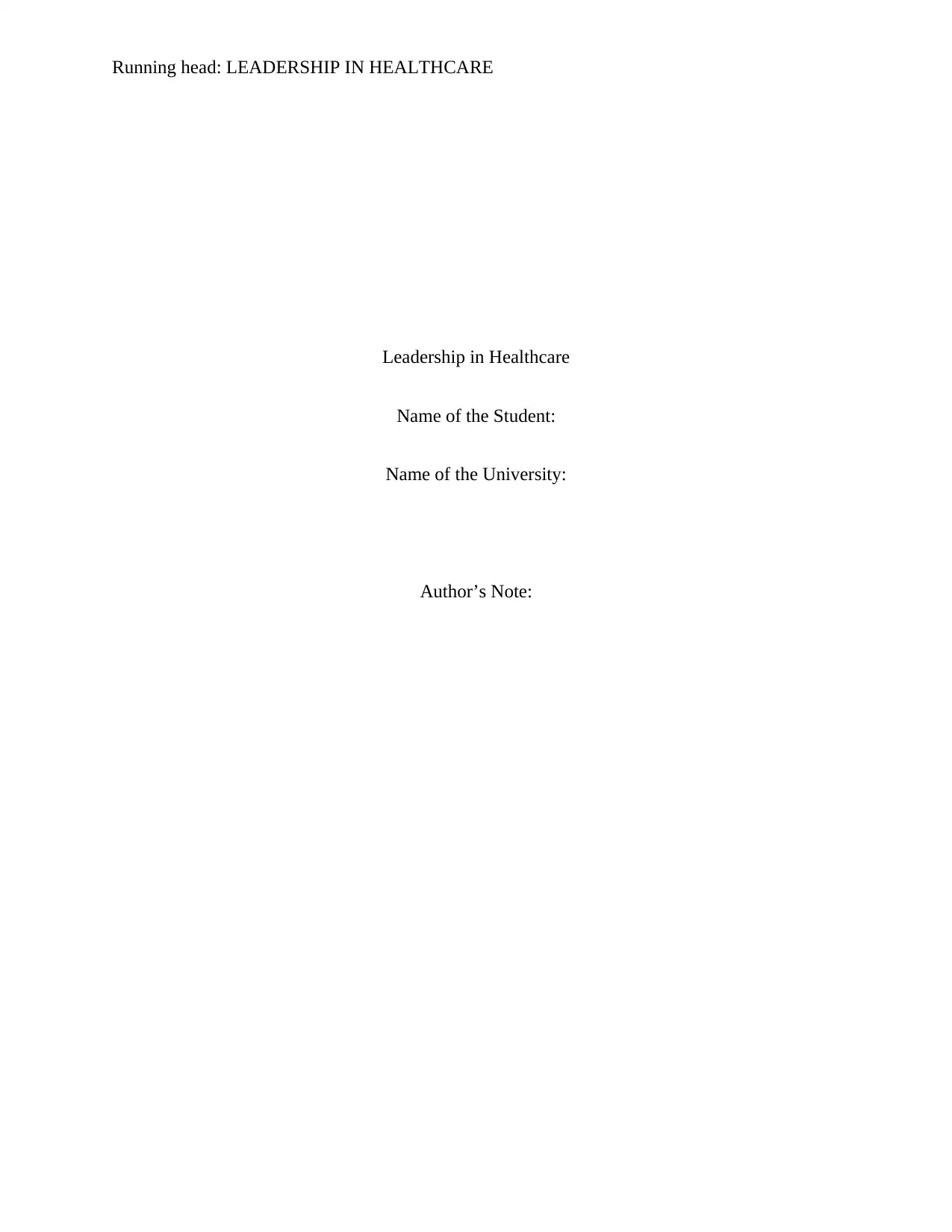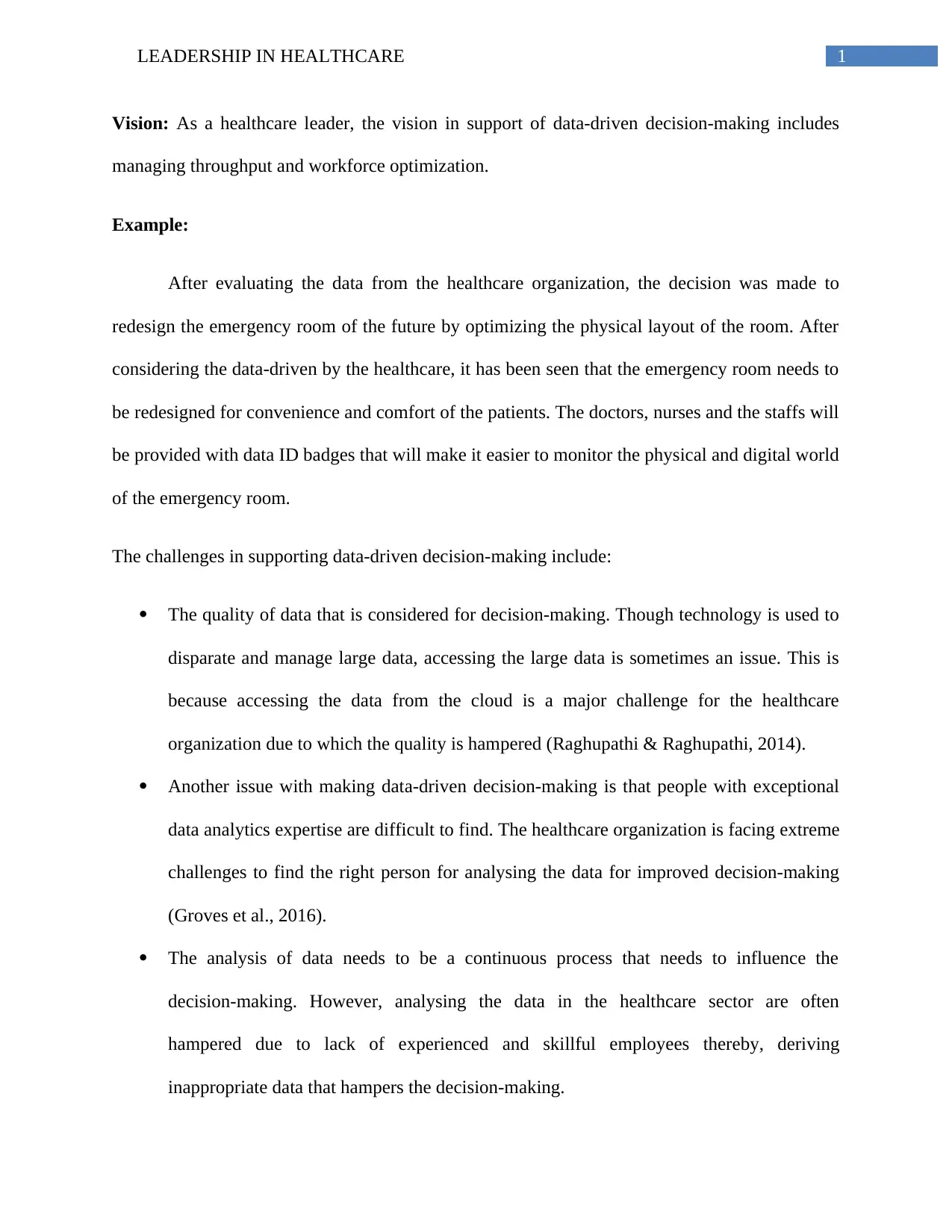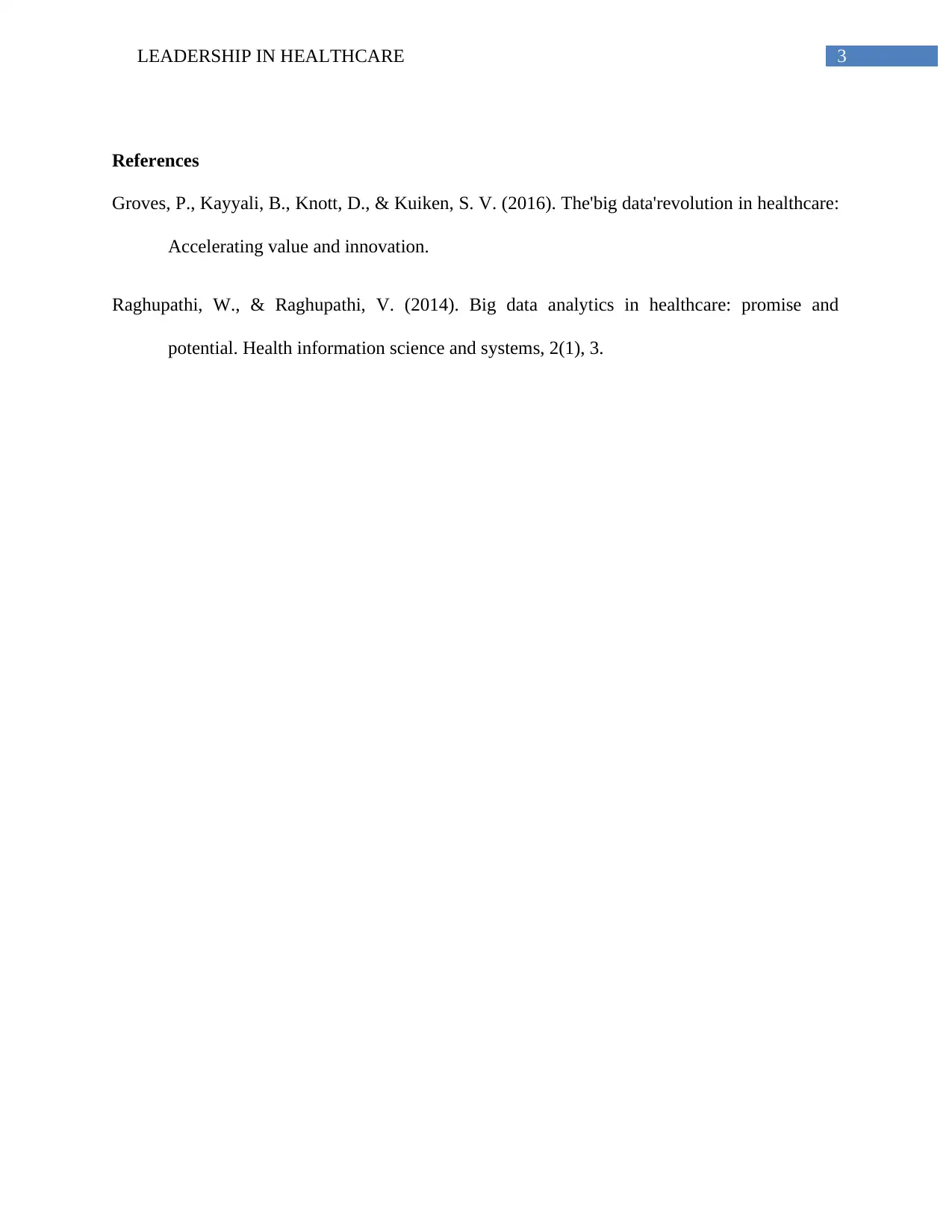Healthcare Leadership: Data-Driven Decision-Making and its Challenges
VerifiedAdded on 2020/04/15
|4
|394
|49
Report
AI Summary
This report explores the significance of data-driven decision-making in healthcare leadership. It highlights the importance of using data to optimize processes, such as redesigning emergency rooms based on data analysis. The report identifies challenges like data quality, accessibility, and the need for skilled data analysts. It also emphasizes the importance of continuous data analysis to inform effective decision-making. The assignment provides an overview of the practical applications of data-driven decision-making and the obstacles that healthcare organizations may face in implementing these strategies. The report concludes by discussing the importance of integrating data analysis into the healthcare setting to improve patient care and operational efficiency.
1 out of 4









![[object Object]](/_next/static/media/star-bottom.7253800d.svg)